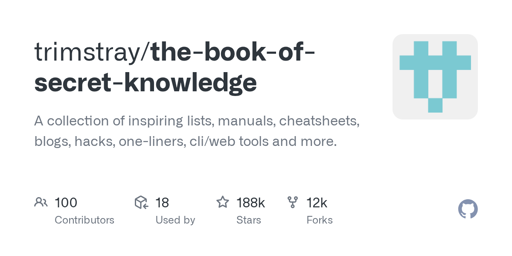This, also site permissions (at least in Vivaldi), extensions like I don’t need Cookies or its filterlists in the adblocker. (eg. https://secure.fanboy.co.nz/fanboy-cookiemonster.txt), all other filtering with Portmaster, the middle finger for Big Brother corps.
Black belt in Mikado, Photo model, for the photos where they put under ‘BEFORE’
- 73 Posts
- 583 Comments

 115·5 days ago
115·5 days agoI don’t use it. Mail is fine, I don’t need other than this. For all other apps, there are tons of FOSS alternatives out there.

 142·5 days ago
142·5 days ago??? I use Proton mail and I never saw something like this. Account with nick, other mail, password and go.
Easy, don’t use products from companies which say user consent, but mean obligation, are the same which say “We value your privacy”, but mean “to sell it to others for our incommings”.

 11·6 days ago
11·6 days agoThe decision cannot be left in the hands of elderly Trump fans, who confuse a remote control with a smartphone.

 1·12 days ago
1·12 days agoLLM are the future, but we must still learn to use it correctly. The energy problem depends mainly on 2 things, the use of fossil energy and the abuse of AI including it without need in everything, because the hype, as data logging tool for Big Brother or biased influencers.
You don’t need a 4x4 8 cylinder Pick-up to go 2km to the store to buy bread.

 5·14 days ago
5·14 days agoNot because the lack of alternateves, even from the EU
https://alternativeto.net/software/github/?license=opensource&origin=eu

 1·15 days ago
1·15 days agoChina is currently world leader by far in eolic and sustainable energy

 110·17 days ago
110·17 days agoVivaldi, with which you can sync with it’s desktop version. Inbuild ad/trackerblocker (editable) in both.
Vivaldi, the only decent Chromium and from the EU (Norway), green energy server in Iceland (Geothermic energy)

 2·18 days ago
2·18 days agoAlso a possibility as others more. OSS always can have an paid model.

 162·18 days ago
162·18 days agoIf it was for money, there are also Paid OSS, not all OSS is free to use. Anyway since nowadays a huge part of OSS is developed by Google, M$, Fakebook, Amazon and other Big Corporations, it turns more important as looking if the source of the product is readable, to look for the ethics, transparency and its community, not always advisable in OSS.
I use Vivaldi and Zen

 14·20 days ago
14·20 days agoNot so easy, the Chromium market is brutal, more for an indie browser like Vivaldi. Releasing it’s full code will be, not only the end of Vivaldi, but also the end of other Chromiums. No for nothing, Vivaldi, despite an marginal market share (~2%) is mencioned on level eye with the US global players because it’s features which nobody else has, the only even used as automotive browser in a lot of EU car brands, not even archived by Google.
https://vivaldi.com/blog/technology/why-isnt-vivaldi-browser-open-source/

 94·21 days ago
94·21 days agoPropietary because part of it’s unique UI which can’t be used legally by Chrome or EDGE, but by the user to mod it, not OpenSource but source public available. For feature rich Gecko browsers it is way easier to be OpenSource, because there isn’t any big (US) corporations which use these browsers, also for simple Chromium forks whithout much features which are interesting for GOOGLE or M$. I understand that opt in to dirct match, partner ads and search engine are preferable, but at least it’s way more ethical to create incomming for the Vivaldi infrastructure (Mastodon, usermail, userblog, sync server, etc…) than logging and selling user data.

 3·22 days ago
3·22 days agoVery needed, thanks 🏆
Agree, eg. Apertus (FOSS) is a great choice, but even some indie ones are pretty private, eg.Andisearch. AI can be great to improve our research, work and creativity, but it’s bad if we use it to substitute our research, work and creativity. But yes, avoiding the AIs from big (US) corporations, which use it to spy and log user data.





US phones spy to sell your data to any advertising company AND gov, Chinese phones spy on you by the gov, because control, bad for Chinese people (most using VPN because the Great Firewall, forbidden but tolerated, mainly to access US services, like Google, YT and other big US corporation, blocked in China), relative irrelevant for other countries. Means that China isn’t worse than the US, less currently. Main issue by Chinese people is the control of the gov, but privacy (there isn’t a private company with access to your data without consent) and social rights is way better as those from the US.